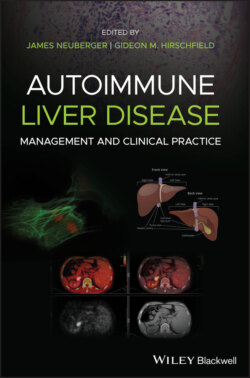Читать книгу Autoimmune Liver Disease - Группа авторов - Страница 73
Immune Deviation of Activated T Cells
ОглавлениеImmune deviation refers to the evolution of dominant populations of effector T cells, which alter local immune responses and compromise tolerance [1]. Activated CD4 Th0 differentiate into multiple functional Th1 subsets differing in cytokine production (Figure 2.2). CD4 Th1 cells secrete IL‐2, the mitogen for all activated CD4 and CD8 T cells, as well as IFN‐γ and TNF‐α. Th1 cells activate macrophages and stimulate B cells to secrete C′‐fixing IgG2. In contrast, Th2 cells secrete IL‐4, IL‐5, IL‐10, and IL‐13 that stimulate B cells to secrete IgG, IgM and IgA antibodies, while immunosuppressing the effects of Th1 cytokines. Th1 predominance produces greater immunopathology associated with autoimmune diseases that cause tissue damage. The signature cytokines of Th1 and Th2 cells inhibit the proliferation and secretion of the cytokines of each other, resulting in a dynamic balance. Skewing of this balance contributes to either the maintenance or the loss of tolerance. The T follicular helper (Tfh) cell secretes IL‐21, which is best known for inducing differentiation of activated B cells into memory B cells and plasma cells. Additional pluripotent effects of IL‐21 impact both innate and adaptive immune functions to increase immunopathology. In innate immunity, IL‐21 increases antigen processing and presentation by APCs, activates macrophages to chemoattract neutrophils, increases NK cell cytotoxicity, including ADCC and secretion of IFN‐γ, and induces NKT cell proliferation and secretion of IFN‐γ, IL‐2, IL‐4, IL‐13, and IL‐17A. In adaptive immunity, IL‐21 induces proliferation and differentiation of Th17 cells and increases both the cytotoxicity of CD8 CTLs and their secretion of IFN‐γ and TNF‐α. Thus, polarization of immune responses toward Th1 and Tfh cells greatly increases the consequences of autoreactive T and B cell activation.
